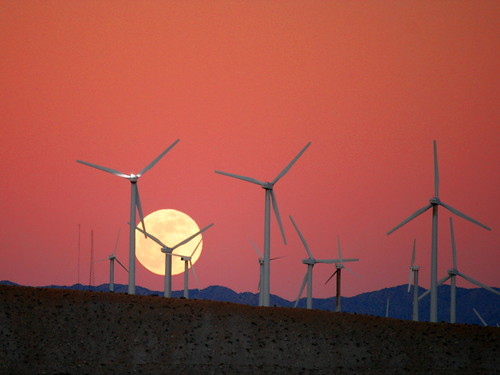China/US Cities Act on Climate Change
Tim Hall | December 8, 2010.
Yesterday at COP16 I attended another fascinating side event on China, this time on its cooperation with the US at the sub-national level in reducing emissions.
I was taken aback by the level of collaboration between cities in the US and cities in China, and the impact this is having on climate change.
It again highlighted the growing insignificance of the UNFCCC and nation-states in acting on climate change.
It was built around Clinton’s quote on Kyoto, “you can’t build a skyscraper from the top down.”
Instead, the hosting organizations the Center for Climate Strategies and Global Environmental Institute, were building the skyscraper of climate action from the ground up – at the level of local municipalities, provinces and cities.
What I found particularly interesting was the level of action on the sub-national level in the US. About 33 states in the US have climate action plans – that’s two-thirds of the US population covered and about half of its greenhouse emissions.
I was reminded of the 1,000 US mayors who in 2008 signed on to emission reduction targets in line with the Kyoto Protocol, and accord never ratified by Washington.
Considering how the US seems to always be portrayed as the bad guys on climate change, this surprised me. It also made me wonder why the US lagged at the national level and in international negotiations.
Of course, it made me further question the legitimacy and worth of nations in acting on climate change. It certainly seems that local governments and the private sector are the true leaders on climate action in the US.
In China it was the other way around. The plans for the skyscraper were drawn from the top down, but the construction was very much bottom up.
I was astounded by the level of action in China taken this year alone. Despite all the good work done by the US cities and states, China’s top down targets seemed to do more in 2010 than all the US efforts over the last thirty years.
This reaffirmed some faith in the national approach to climate change, and showed the importance of federal governments in the US and Australia being the true leaders and signalling the path for lower levels, and the private sector, to follow.
Another statement which stuck with me was that one of the fastest growing sectors in China’s economy was green energy. That makes green technology a growing market in the world’s biggest energy marketplace. I began looking at changing my university course.
The forum was brilliantly summed up by Wenhang Huang, an official with China’s National Development and Reform Commission, who said, “we need both national and sub-national action on climate change…we need widest possible participation.”
The debate over the relevance of the nation in dealing with climate change will no doubt continue for a long time yet (or at least as long as it takes for the UNFCCC/individual nations to take significant action).
Meanwhile sub-national levels must continue to do their best to act on climate change and in the spirit of globalization continue to collaborate with cities and provinces from around the world.
By Tim Hall, feature image via the UNFCCC.














comment